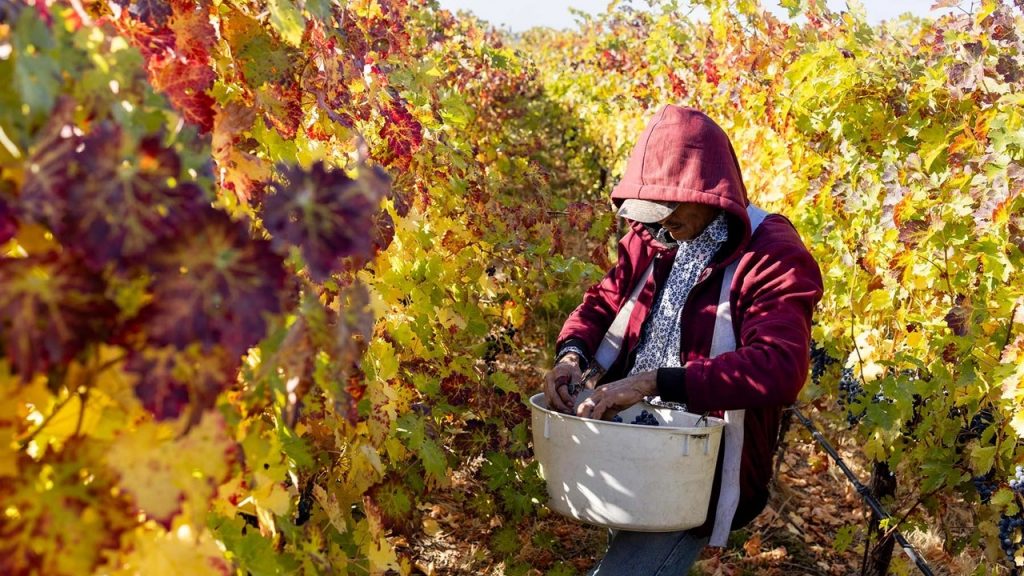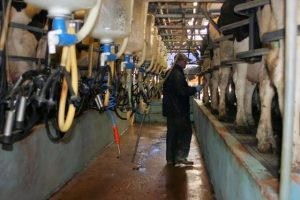
President-elect Donald Trump’s proposed mass deportations could exacerbate labor shortages in U.S. agriculture, says Landus CEO Matt Carstens.
President-elect Donald Trump’s threat of mass deportations risks hurting U.S. agriculture, dealing an additional blow to a sector already struggling with labor shortages and bracing for trade disputes.
Matt Carstens, head of Landus, Iowa’s biggest farm cooperative, said Trump’s plans should be approached carefully and include feedback from American farmers. If Trump follows through with his plan to send millions of undocumented workers out of the country, it would have repercussions across the farming world, exacerbating a decades-long labor-shortage problem.
“It definitely has an impact,” the chief executive officer said during an interview on Bloomberg Television’s “Balance of Power.” “It’s still a very human-intensity business that we’re in.”
While the rural U.S. has seen some population growth in recent years, it experienced an overall loss of population in the prior decade, according to the U.S. Department of Agriculture. That makes the labor dilemma even more challenging as older farmers and ranchers find it tougher to pass down operations to younger family members.
The effect of deportations could be especially acute in areas such as California, which abounds in specialty crops like fruits, nuts and vegetables and relies on seasonal workers from Mexico and other countries. The USDA has said nearly half of hired crop farmworkers lack legal immigration status.
The grain and soybean-dominated Midwest also could be at risk, according to Carstens. The region depends in part on the government’s H-2A program that allows certain U.S. employers to bring foreign nationals into the country to fill temporary agriculture jobs.
Trade tension
On the trade front, any new tariff clash with China — the world’s largest importer of agriculture products — would hit American growers as they battle lower demand for exports and a plunge in crop prices.
“When you lose volume like we have to China, that has a long-term ripple effect, and it’s hard to recover from,” Carstens said.
Rural communities overwhelmingly backed Trump in his election win last week over Kamala Harris, even after a trade war with China during his first term put U.S. growers at risk of losing global market share in the long run. Soybean sales alone to the Asian nation plummeted by almost 79% in the first two years of Trump’s presidency, though $28 billion in subsequent farm aid eased the pain.
“He did come back around and square it up with the farmers,” Carstens said in an interview at Bloomberg’s Chicago office on Tuesday. “That’s a memory they have.”
Since then, competition from Brazil for the world’s crop exports, including to China, has ratcheted up and led to serious concern about the future of America’s standing as a global agriculture leader.
“South America is growing — they’re improving yields, they’re planting more acres,” Carstens said. “Combine that with tariffs and other disputes and debates that we’re having with other countries and that becomes problematic.”
© 2024 Bloomberg L.P.
You can now read the most important #news on #eDairyNews #Whatsapp channels!!!
🇺🇸 eDairy News INGLÊS: https://whatsapp.com/channel/0029VaKsjzGDTkJyIN6hcP1K























